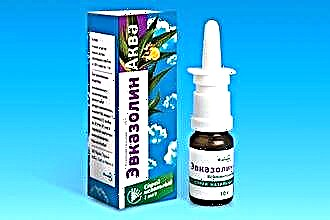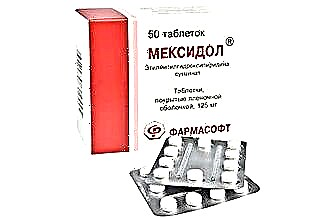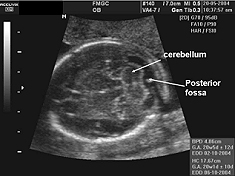 Many vasoconstrictor drugs are used during gestation, i.e. pregnancy is not recommended. In most women, during the period of gestation, resistance to infections decreases due to the launch of a natural mechanism for suppressing immune defenses.
Many vasoconstrictor drugs are used during gestation, i.e. pregnancy is not recommended. In most women, during the period of gestation, resistance to infections decreases due to the launch of a natural mechanism for suppressing immune defenses.
The female body begins to produce specific enzymes that prevent the rejection of the fetus and miscarriage. A decrease in general immunity greatly increases the risk of developing colds and, accordingly, rhinitis. From the article you will find out which drops from the common cold can and cannot be used by expectant mothers in different trimesters of pregnancy.
Features of the use of drops
Nasal congestion and heavy nasal discharge are frequent companions of pregnancy. Nasal obstruction (obstruction of the nasopharynx) can be associated with the development of an infection in the respiratory system or a change in hormonal levels. In particular, in the first trimester, many women complain of persistent violation of nasal breathing. Hormonal changes can lead to disruption of the outflow of intercellular fluid from the mucous membranes, as a result, difficulty in breathing.
The use of nasal drugs during pregnancy is considered justified only in cases where the positive effect of the use of medications outweighs the possible harm. It should be understood that a runny nose is most often a consequence of the development of an infection, therefore, ignoring the problem can lead to undesirable complications - sinusitis, nasopharyngitis, otitis media, etc.
When choosing drops for a cold for pregnant women, it is advisable to take into account several important criteria:
- The gestation period. In the early stages of pregnancy, vital organs and the neural tube are formed, therefore, the use of potent drugs can lead to abnormal development of the fetus;
- Composition of medicines. Many drops contain oxymetazoline, which is categorically contraindicated for expectant mothers, therefore, before using the drugs, you need to find out their composition and read the instructions for use;
- Individual intolerance. Most decongestants (vasoconstrictor drugs) contain substances that cause an allergic reaction and angioedema of tissues. Before using them, you need to be convinced that there are no allergy-provoking substances in their composition.
"Vibrocil", "Nazol" and "Nazivin" are the names of drugs that cannot be used by a pregnant woman due to their toxicity and negative effect on the development of the fetus.
First trimester
In the 1st trimester of pregnancy, it is recommended to minimize the effect of synthetic drugs on the female body. Synthetic substances that overcome the placental barrier and penetrate into an unformed organism can provoke the development of defects and fetal death. What drugs can be put into the nose to make breathing easier?
In the first months of gestation, it is allowed to use nasal products based on natural ingredients and isotonic solutions. They are practically not absorbed into the systemic circulation and do not cause undesirable reactions in organism. Moreover, such drops can be used prophylactically to prevent dehydration of the mucous membranes.
Herbal preparations
In the first months of gestation, herbal nasal preparations are allowed for use. They do not contain potentially hazardous substances that can provoke side effects. Drops based on medicinal herbs gently affect the tissues of the nasopharynx, eliminating inflammation and swelling in them.
To eliminate problems with nasal breathing, you can use the following drugs:
- "Pinosol";
- "Vitaon";
 "Pinovit";
"Pinovit";- Evkazolin.
Important! It is not recommended to use oil preparations for people suffering from allergic rhinitis.
Most herbal preparations contain extracts of peppermint, eucalyptus, menthol and pine, which are highly allergenic. Therefore, people prone to allergic reactions should not use them.
Homeopathic remedies
In the first months of gestation, homeopathic drops are allowed to drip into the nose. Their components are not absorbed into the bloodstream and act only locally, without causing side effects. Many of them have a pronounced immunostimulating and decongestant effect. Some of the most popular nasal drips in the 1st trimester include:
- Edas-131;
- Euphorbium Compositum;
- Aflubin.
Homeopathic medicines do not have an immediate effect on the nasopharyngeal mucosa. The therapeutic effect of using drops will become apparent within 2-3 days of regular use of the drugs.
Drops with sea salt
For a runny nose and nasal congestion, it is advisable to use drops with saline solutions. They thin the nasal mucus and partially relieve excess fluid accumulation in the tissues of the respiratory tract, which helps to normalize breathing. To cope with the unpleasant manifestations of a cold, it is advisable to instill such drops into the nose:
- Physiomer;
- Dolphin;
- Morenazal.
Salt-based medicines dry out the mucous membrane, so they are not recommended for use in the development of atrophic rhinitis.
In the fight against rhinitis, rinsing the nose with saline will be no less effective. To flush mucus and pathogenic flora from the nasopharynx, it is recommended to perform the procedure at least three times a day. As a preparation, "Physiomer", "Sodium Chloride", etc. can be used.
Second trimester
In the second trimester, you can use all those drugs that were recommended for use earlier in pregnancy. Starting from the 4th month of gestation, other nasal agents can be used - antiallergic, vasoconstrictor and antiviral. The fact is that the 2nd trimester can be considered the safest period in terms of the risks of fetal rejection and miscarriage.
Antiallergic drops
If a runny nose was triggered by allergens (plant pollen, pungent odor), you can drip antihistamines into your nose. They stop the allergic reaction in the rudiment itself and relieve puffiness, thereby improving the patency of the airways. In the 2nd trimester of pregnancy, it is advisable to use the following antiallergic drops and sprays:
- Rinitol;
- Nazaval;
- "Cromohexal".
You can drip drops only in cases where the manifestations of allergies can cause more harm to the unborn child than the side effect of the use of nasal drugs.
During the entire period of pregnancy, it is advisable to regularly ventilate the room and do wet cleaning. This will reduce the likelihood of developing allergic rhinitis and, accordingly, the need for antihistamines.
Vasoconstrictor drops
Can pregnant women use nasal vasoconstrictor drugs? Doctors strongly discourage the use of decongestants that contain oxymetazoline. They have a vasoconstrictor effect on blood vessels not only in the nasopharynx, but throughout the body.If decongestants are used more than 1-2 times a day in the 2nd trimester of pregnancy, this will subsequently lead to fetal hypoxia (lack of oxygen).
Some of the conditionally approved drugs that can be used by women in the 2nd trimester of pregnancy include:
- Otrivin Baby;
- "Tizine";
- "Naphtizin".
It is advisable to instill nasal drops for pregnant women no more than 2 times a day. Abuse of drugs can lead to irreversible consequences, in particular, hypoxia of the child's brain.
Third trimester
What can be used for a cold in the third trimester of pregnancy? During this period, it is not prohibited to use all those drugs that were used in the 1st and 2nd trimester, except for decongestants. As mentioned, vasoconstrictor medications can cause blood vessels in the placenta to shrink, resulting in premature birth.
 To facilitate the course of an infectious disease during pregnancy in the 3rd trimester, it is advisable to use the following medications:
To facilitate the course of an infectious disease during pregnancy in the 3rd trimester, it is advisable to use the following medications:
- local antibiotics ("Funentin", "Polydexa") - kill bacteria and eliminate manifestations of purulent inflammation;
- antiviral drops ("Genferon", "Grippferon") - increase local immunity and prevent the penetration of virions into the tissues of the nasopharynx;
- hormonal sprays ("Nasonex", "Beconase") - relieve swelling and inflammation, accelerate the recovery processes in the mucous membranes.
Only a specialist can prescribe nasal drops to pregnant women after determining the true cause of the obstruction of the nasopharynx. It should be understood that during pregnancy, the risk of developing fetal abnormalities increases in case of irrational use of medications. It is possible to cure a stuffy nose only with the correct determination of the dosage of funds and the period of their use.
Conclusion
Why should pregnant women use nasal drops with caution? The composition of very many medicines includes components that can damage the fetus and provoke pathologies. This is especially true for drugs with a vasoconstrictor effect.
According to practical observations, the 2nd trimester is the least likely period for the occurrence of defects in the development of the unborn child. But if you use decongestants more than 2 times a day for a long period, the child will develop under conditions of hypoxia, which will subsequently lead to disruption of the brain or freezing of the fetus.
Medicines based on saline solutions are the safest drops for a cold during pregnancy. They can be dripped into the nose for rhinitis and nasal congestion of any etiology. They do not cause side effects and do not in any way affect the intrauterine development of the fetus.

 "Pinovit";
"Pinovit";

